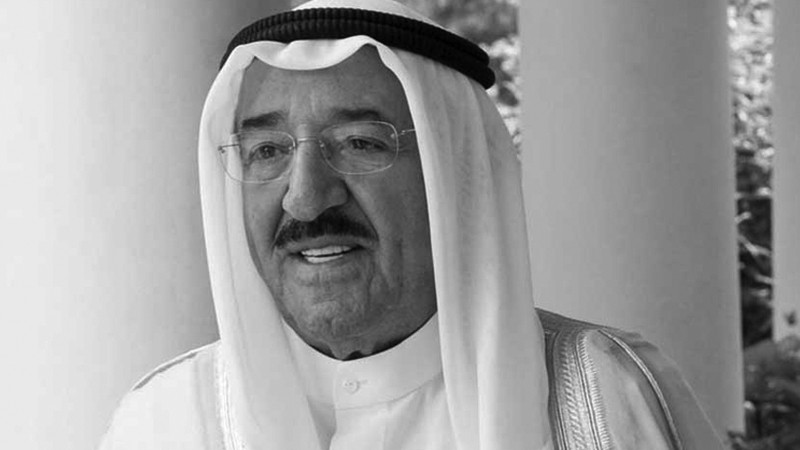29/09/2020
29/09/2020
DUBAI, United Arab Emirates (AP) - The death of Sheikh Sabah Al Ahmad Al Sabah, the leader of Kuwait who earned a reputation as a seasoned diplomat and a rare ruler who could cross the region’s political and sectarian divides, touched off an outpouring of grief from the Arab world Tuesday.

As news of his death broke, condolence messages streamed in from leaders across the region and beyond. As a member of the Gulf Cooperation Council, a regional body of Arab Gulf states, Kuwait has often charted its own course, pushing for diplomacy to resolve a bitter dispute between Qatar and other Arab states that continues to this day.
The United Arab Emirates announced a three-day mourning period and lauded Sheikh Sabah for his "wisdom, tolerance and peace,” with Abu Dhabi Crown Prince Sheikh Mohammed bin Zayed Al Nahyan, the Emirates’ day-to-day ruler, describing him as "a great pioneer in Gulf cooperation.”
Saudi Arabia, one of Kuwait’s closest allies, said that the kingdom’s leadership and Saudi people share their grief with "brotherly Kuwaiti people." The Saudi royal court statement said the emir died after a journey full of achievement and generous service to his country and humanity.
"With the departure of Sheikh Sabah, we lose a wise leader who devoted his life to the service of his country and to Arab and Islamic nations,” Saudi Foreign Minister Prince Faisal bin Farhan wrote on Twitter.
Such was Sheikh Sabah's regional status that condolences even poured in from those locked in long-running rivalries with Kuwait's key Gulf allies.
The emir of Qatar, Sheikh Tamim bin Hamad Al Thani, referred to Sheikh Sabah as the "father of all."
"With his departure, the world has lost a beacon and symbol of humanity,” he wrote.
Yemen’s Shiite Houthi rebels, who are battling a Saudi-led military coalition for control of the country, also offered a tribute. Mohammed Abdul-Salam, a Houthi spokesman, said the rebels "would not forget his support of peace negotiations,” adding that Sheikh Sabah's "keenness to extinguish the fire of war” was appreciated by all sides.
In Lebanon, where the late Kuwaiti leader played a key role in trying to end the country’s ruinous 1975-90 civil war and later helped with its reconstruction, politicians offered their condolences.
"With the death of Sheikh Sabah, Lebanon has lost a great brother who stood by the Lebanese during the difficult circumstances over the past years,” said a statement from Lebanese President Michel Aoun.
The U.S. Ambassador to Kuwait Alina Romanowski called Sheikh Sabah a "popular leader and special friend of the U.S.” The U.S. Embassy in Kuwait said he "devoted his life to peace and regional stability.”
A statement issued from Egyptian President Abdel Fattah el-Sissi expressed "great sadness” over Sheikh Sabah's death, recalling the long-standing "fraternal stance” of the emir toward Egypt. He ordered Egypt’s flag lowered to half-mast for three days.
Jordan's royal court announced a nationwide 40-day mourning period, with the country's King Abdullah II mourning the loss "of a great brother and wise leader who loved Jordan.”


